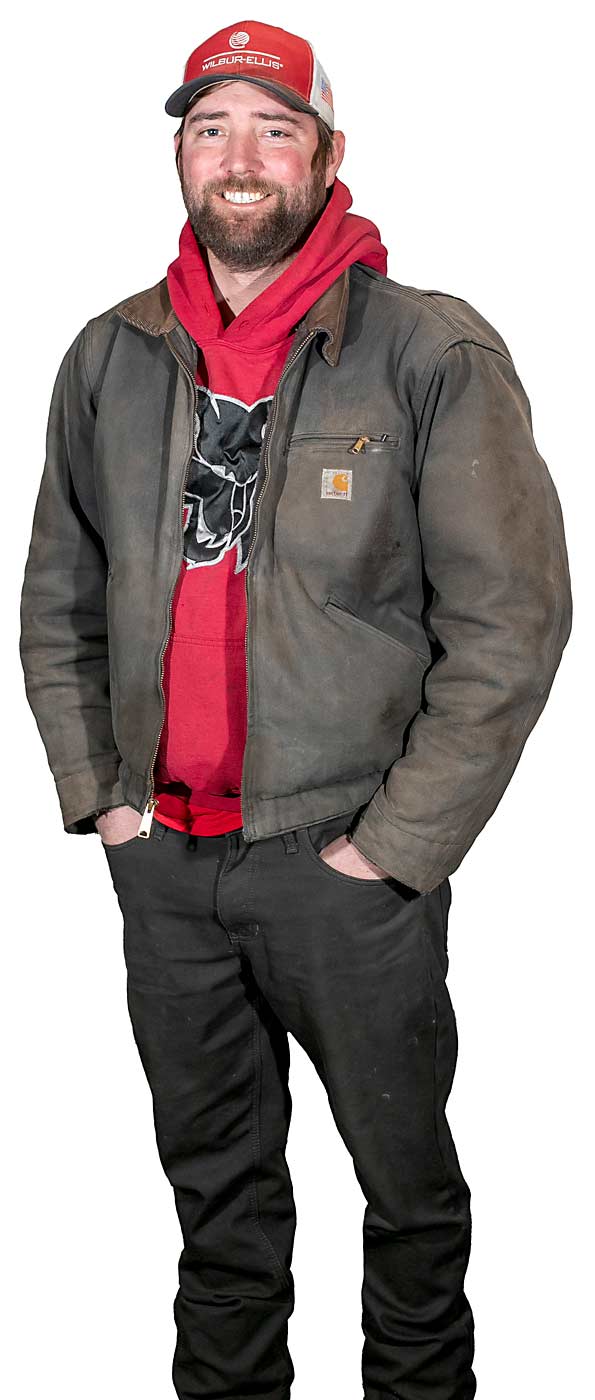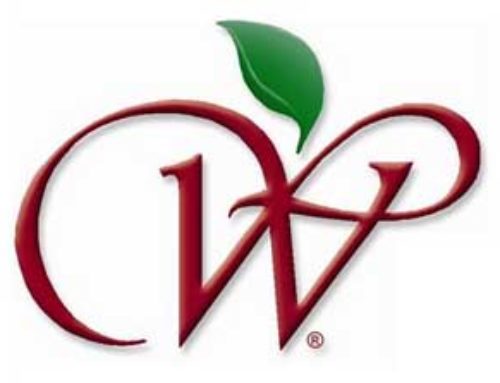family background/ Robert is a fourth-generation farmer who studied business and accounting at Central Washington University before returning to the family farm. He is the son of Kathy and Rick Pittman, and his grandfather was Harold Pittman.
age/ 33
hometown/ Manson, Washington
crops/ apples and pears
role/ crop manager
business/ Pitt-Stop Orchards

Why did you go into farming?
I believe you must love to be outside to be a farmer and also place a high value on the time you spend with your family. When I got home from school, my mom and dad were home for dinner every night, because he spent his early mornings in the orchard. That was a huge thing for me when looking for a career. I could have done other things and probably made a heck of a lot more money than what I’m doing now, but I wouldn’t be anywhere as happy as I am right now. Farming is more than a dollar value. You’re going to be a lot happier being with your family, your close friends and your co-workers. It’s awesome.
What’s the family’s history in farming?
My grandfather was in business with Boeing, then he started Pittman Bros. Orchards and loved it. He was a lot happier switching to agriculture and working for himself and with his brother. My father did something similar: worked as an engineer, made a lot of money, didn’t have a lot of family time. He got away from that when he went into farming. He realized he should’ve gone into ag sooner in his career. For me, I went to college loving robotics and wanted to go into IT as a career. I saw the writing on the wall that a lot of technology was heading to the farm, and I believed it would have a growing impact on how we produce fruit. When I returned, I was in charge of bringing technology and modern techniques to the farm to improve what we do.
What were some of your challenges getting started?
When I came back, everything was pretty old. We didn’t have any modern varieties — didn’t even have any Honeycrisp. The newest variety we had was from the ’80s, with the Fujis probably being our most modern crop. One of the reasons my grandfather didn’t like many of the new varieties was because of tree health management. Even if everyone said they tasted great, it didn’t matter because they were hard to grow. One of the first things I did was look for new varieties that would also be a very healthy tree to manage. Without a healthy tree, you’re not going to have a healthy crop. I was looking for the best high-coloring variety and liked the storage qualities of Cosmic Crisp (WA 38) and SugarBee. Hearing that WA 38 is an apple that can go in the grocery store or your refrigerator and it stays good for a month blew me away. I thought — wow — that’s completely different than a lot of the old varieties that you cut up to eat, and if you don’t eat them right away, they’re starting to turn brown and get bad. Storage of the fruit is always a big, big thing with moving your product worldwide. So, if it stores better, you should be able to sell that apple well over a greater period of time. That’s where the older varieties like a Golden Delicious struggle because they are best fresh off the tree. They’re a great apple, but they decay so fast, it’s extremely hard to get those into the market at the correct time.
What’s your perspective with running a small farm?
The biggest thing for a small farm is making sure your quality is better than any other grower. The only way you’re going to be profitable is when you produce the highest-quality fruit because you don’t have the volume to produce a second-grade fruit. It’s just not going to work. It’s extremely hands-on work for sure, and if you have older trees and varieties that don’t color well, it’s tough. You’re forced to try different pruning techniques, spraying or irrigation processes to try and get as much color into those fruits as possible. The market demands good color. And if the fruit isn’t profitable because your color isn’t there, you’ll have to take a leap and do something like graft a new apple variety onto that older tree and roll the dice on something that may work or may not.
—by TJ Mullinax






Leave A Comment